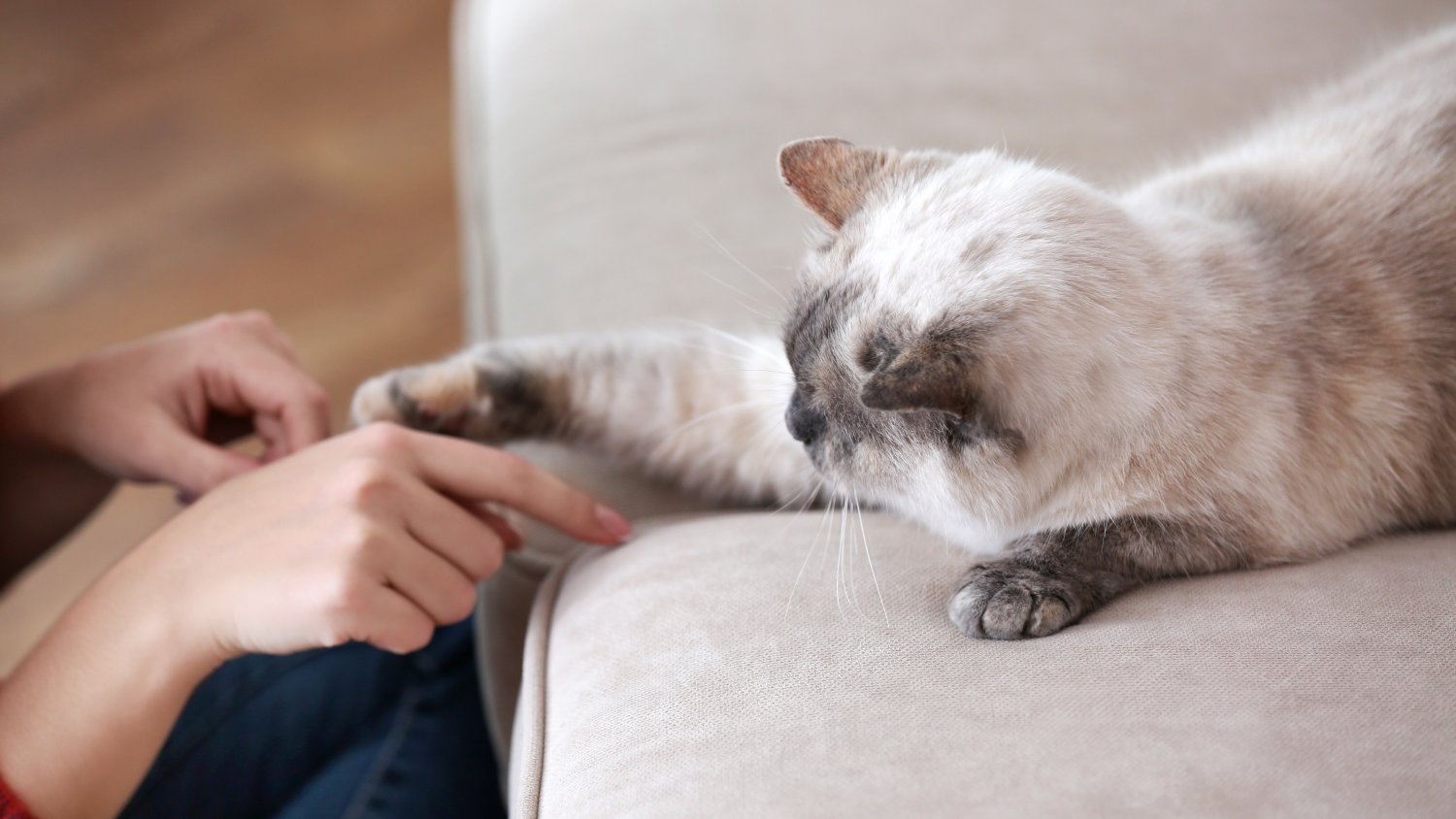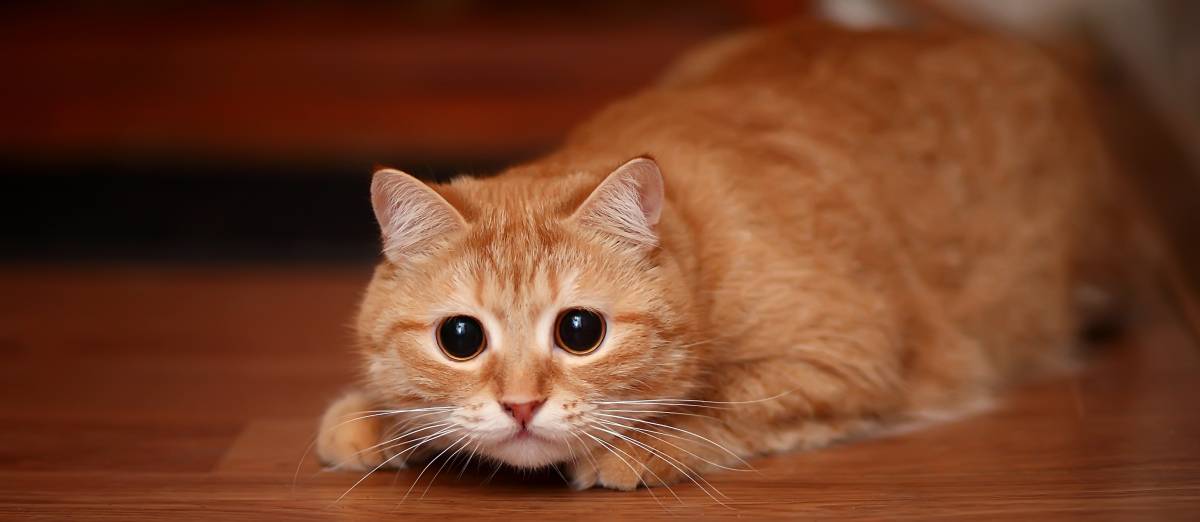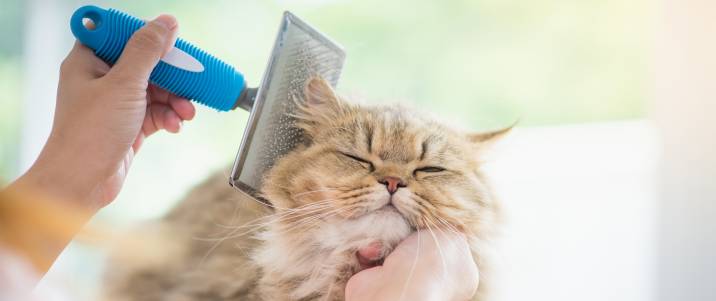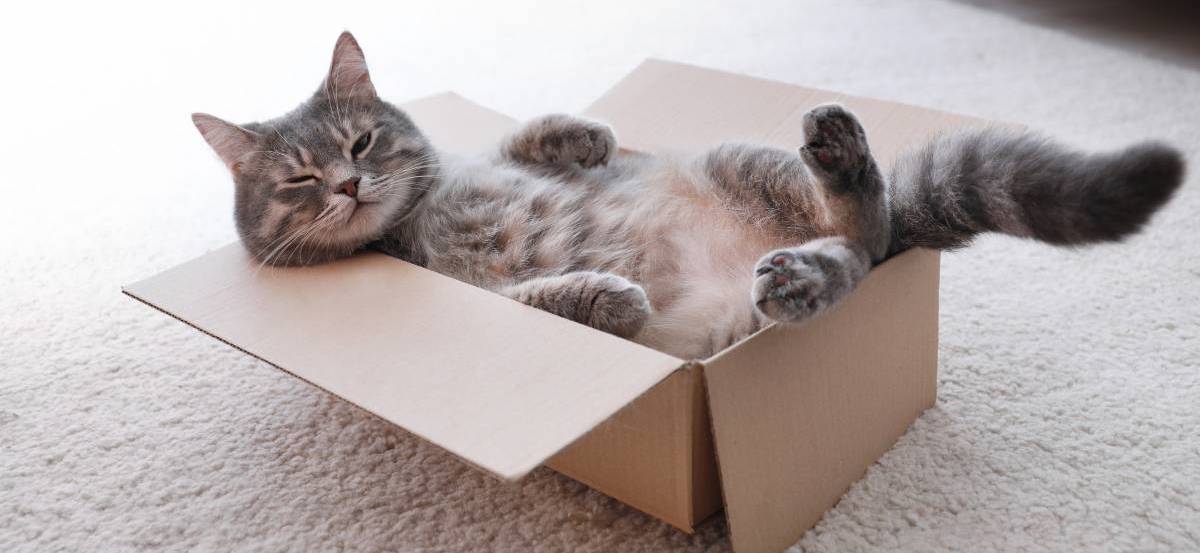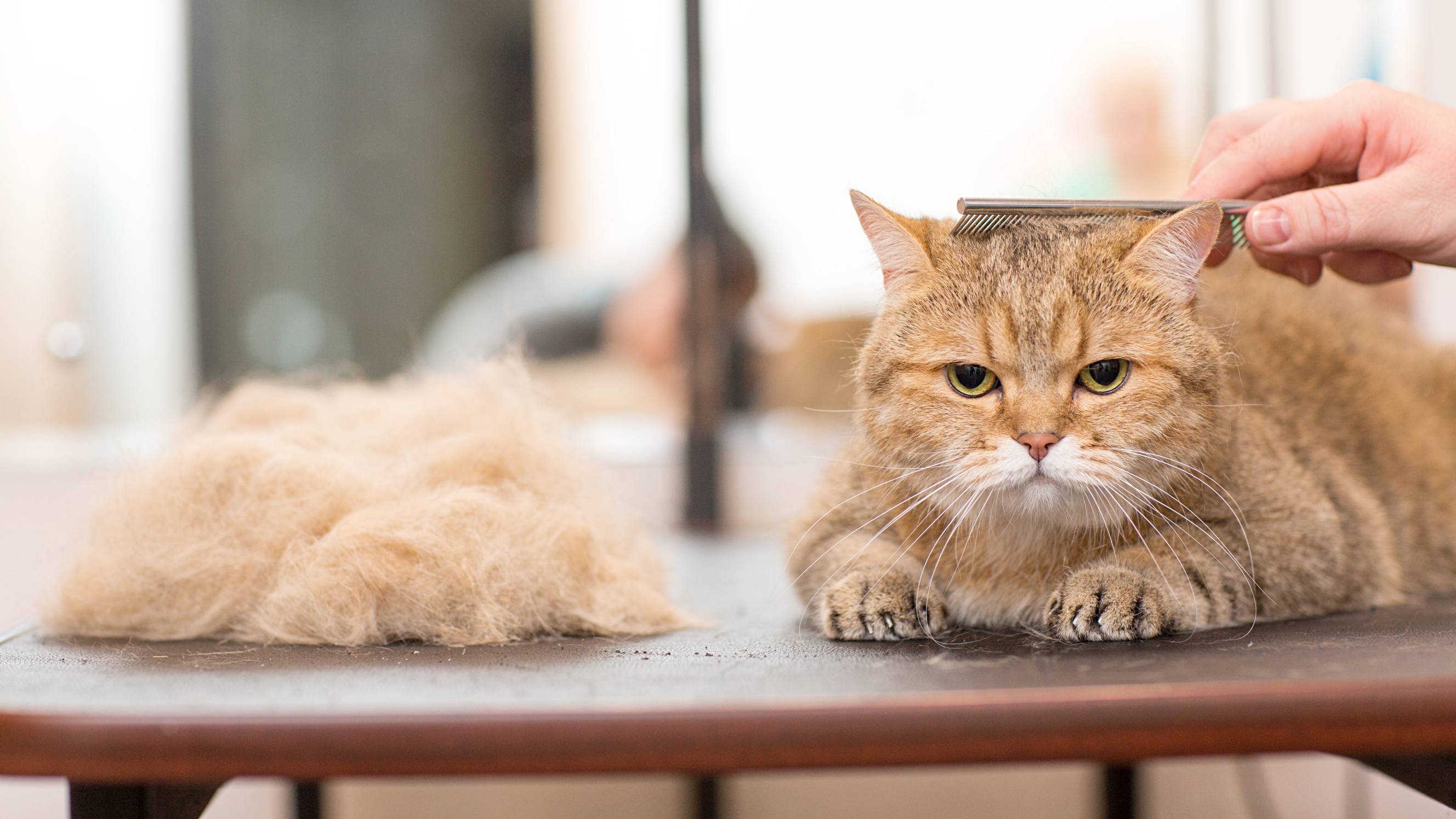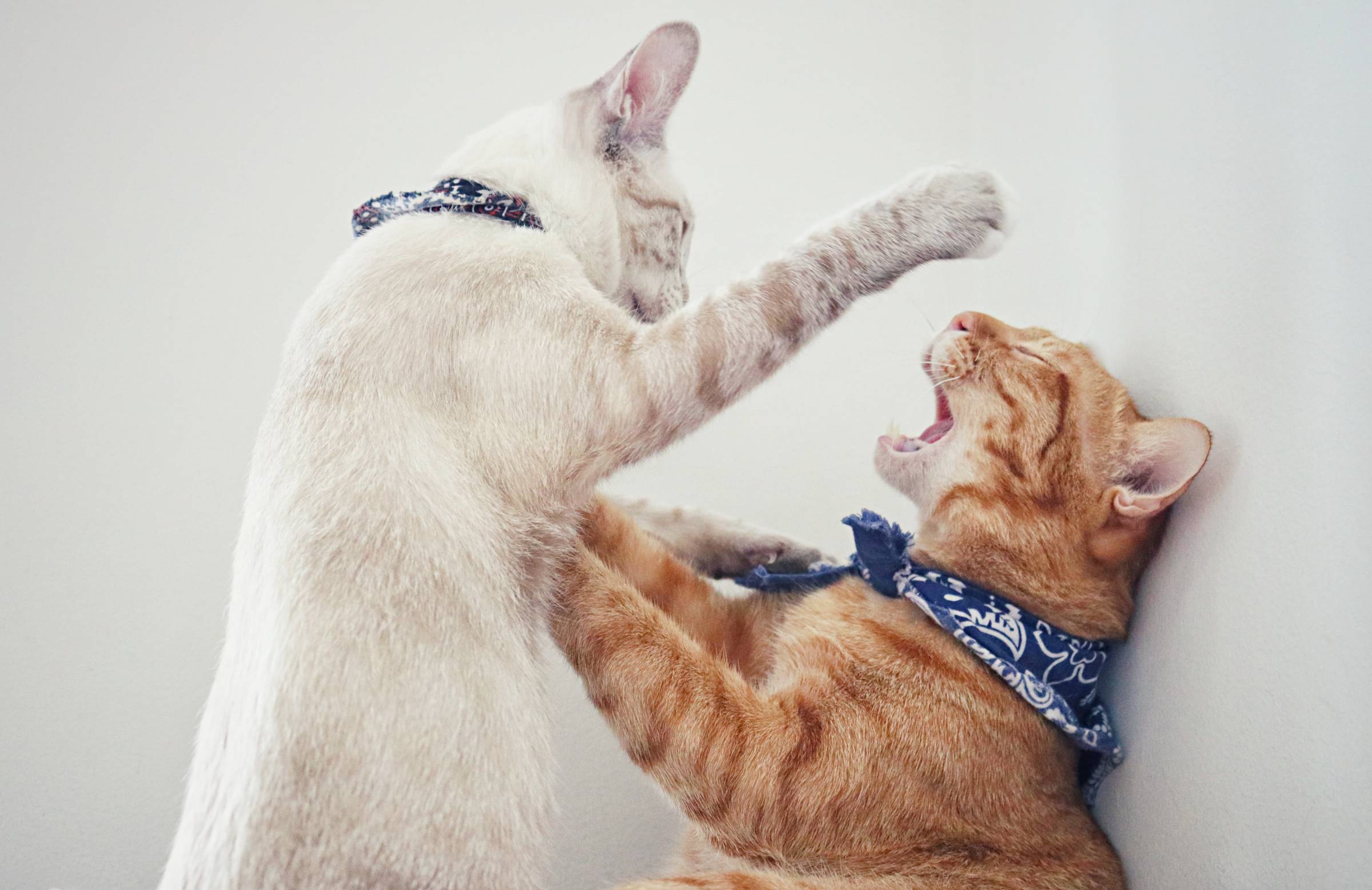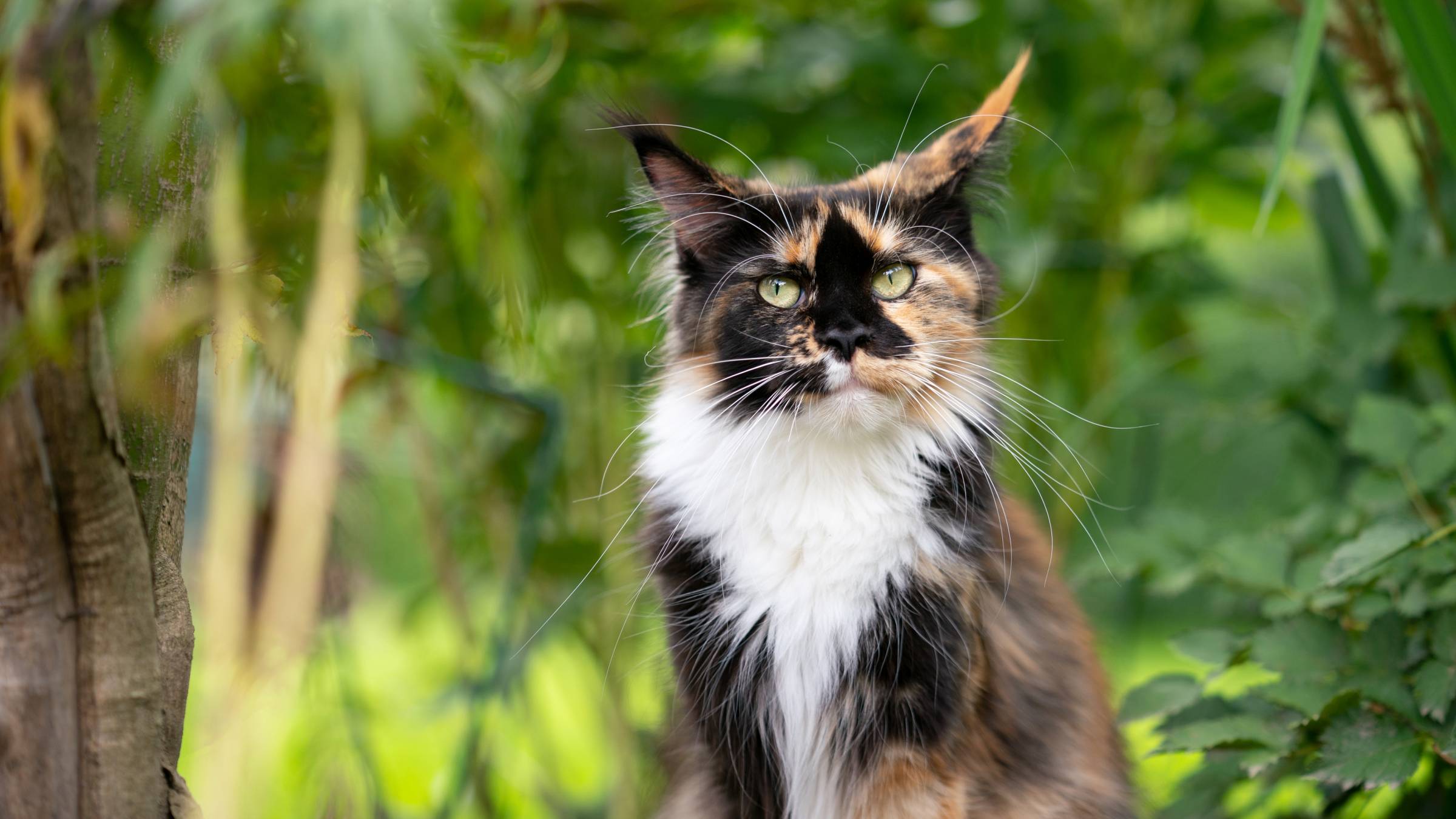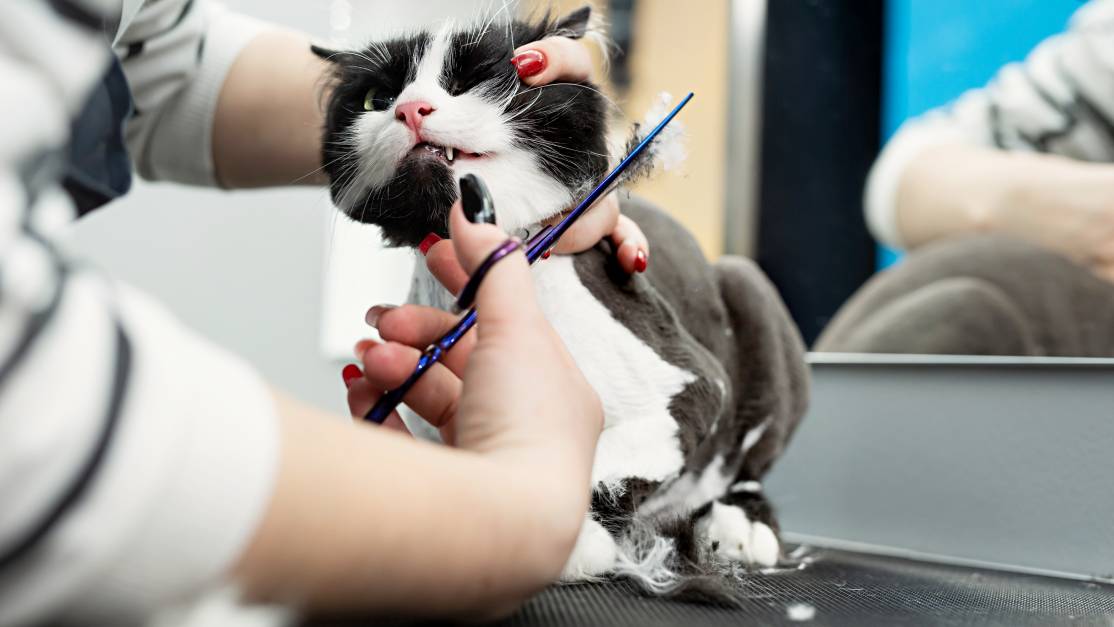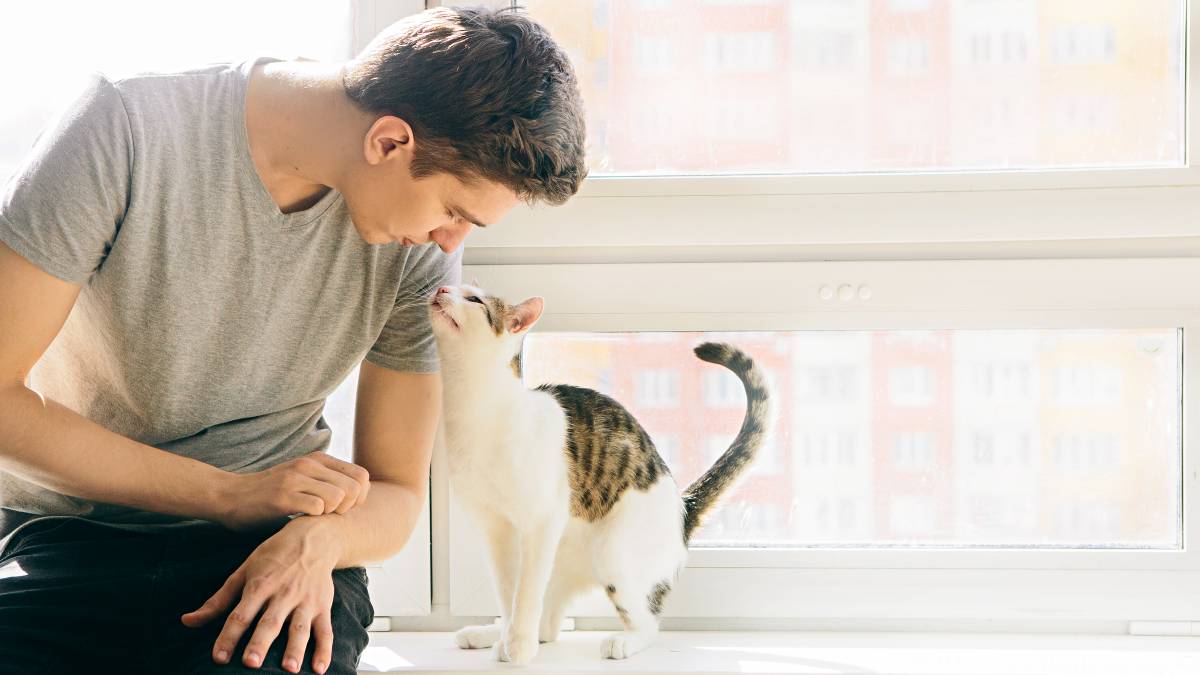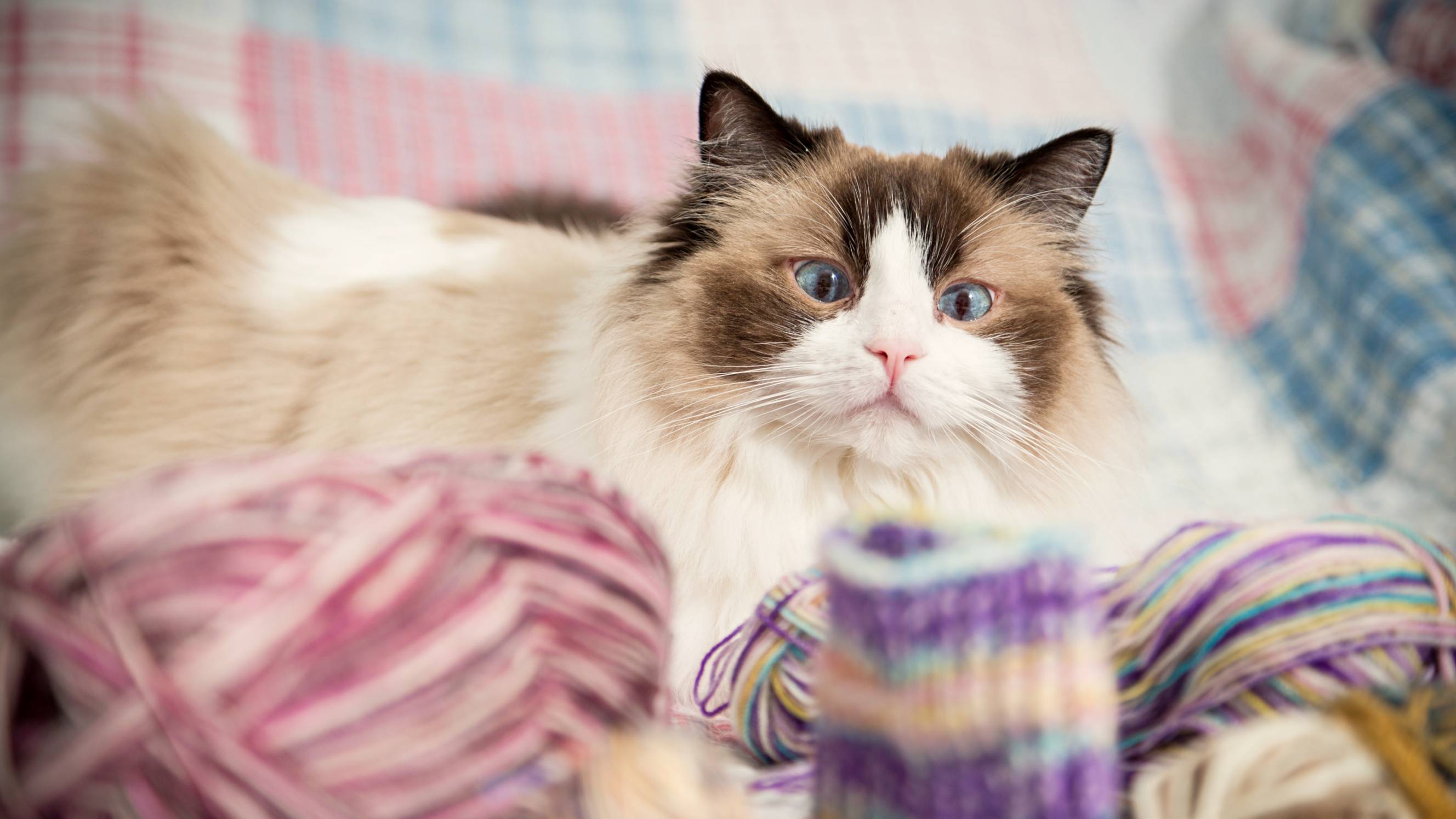
- Home/
- Comparisons/
- Cat Care/
- Birman vs Ragdoll
Birman vs Ragdoll: What are their key differences?
Comparing Birmans and Ragdolls based on origin, appearance, and more
Last Updated on
Key Facts
- A Birman is a medium-sized cat breed with white or pale cream fur. Its semi-long coat also has blue, seal, chocolate, or lilac points, while its eyes are bright blue.
- A Ragdoll is a large cat breed with a mostly white, cream, or grey coat. Ragdolls come in distinct coloured patterns, but they all have gorgeous blue eyes.
When picking human companions in the form of felines, it is important to have knowledge of cat breeds to help determine which one fits your lifestyle and preferences the most. However, it can be difficult to differentiate between certain types, like in the case of Birman vs Ragdoll.
As such, this Ragdoll vs Birman article makes it easier for you to distinguish the two breeds through a rundown of their similarities and differences.
What is a Birman?
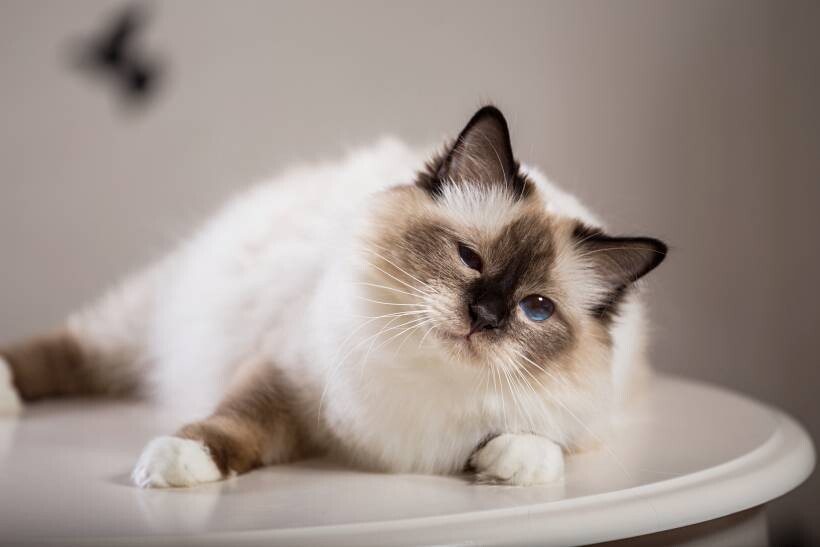
A Birman is a domestic cat breed of average size and lifespan, usually living for about 12 to 16 years. Its fur is mostly white or cream. But as a colourpoint cat, some of the Birman breed’s body parts—such as its face, ears, tail, and paws—tend to have darker pigmentations. These can range from seal and chocolate to blue and lilac.
What is a Ragdoll?
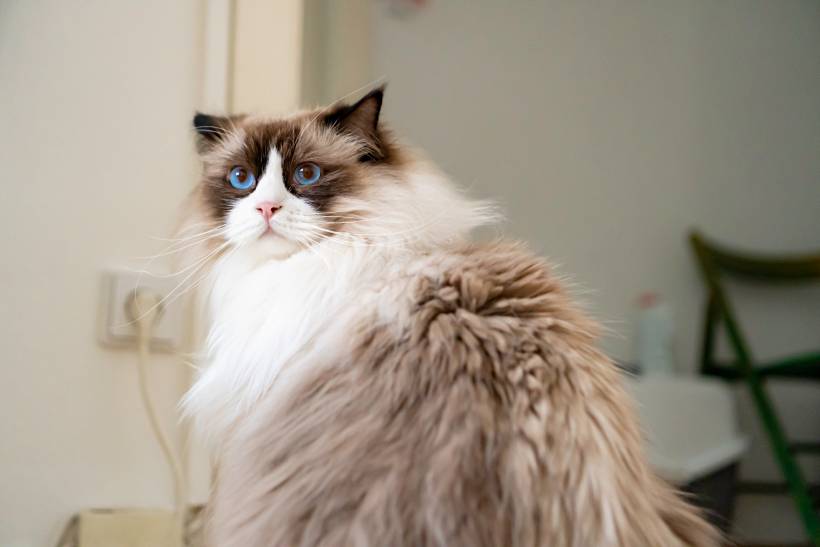
The Ragdoll breed of cat is characterised by mostly white, grey, or cream fur. However, Ragdoll kittens start off with a pure white colour, and their colour pattern only begins to manifest within one to two weeks. They also have an average lifespan of 12 to 17 years, but they tend to be significantly larger than Birmans.
Ragdoll cat vs Birman: How are they different?
Let’s find out how to identify a Ragdoll cat vs Birman by exploring these two cat breeds’ origins, physical characteristics, and more.
In terms of origin
The Ragdoll’s origins can be traced back to Ann Baker, a California-based cat breeder from the 1960s. To produce this man-made variety, she initially crossed Josephine—a white cat similar to an Angora—with her neighbour’s Birman-looking feline. The breed became fully recognised by the American Cat Fanciers Association in 2000. The International Cat Association also has it in its official breed registry.
Meanwhile, the Birman breed history is not as well documented. Also called the sacred cats of Burma, felines of this variety are said to have originated from present-day Myanmar, according to legends. In 1925, they became officially recognised by France’s cat association, and Birman exportation spread throughout Europe thereafter. The International Cat Association started recognising the breed in 1979.
In terms of appearance
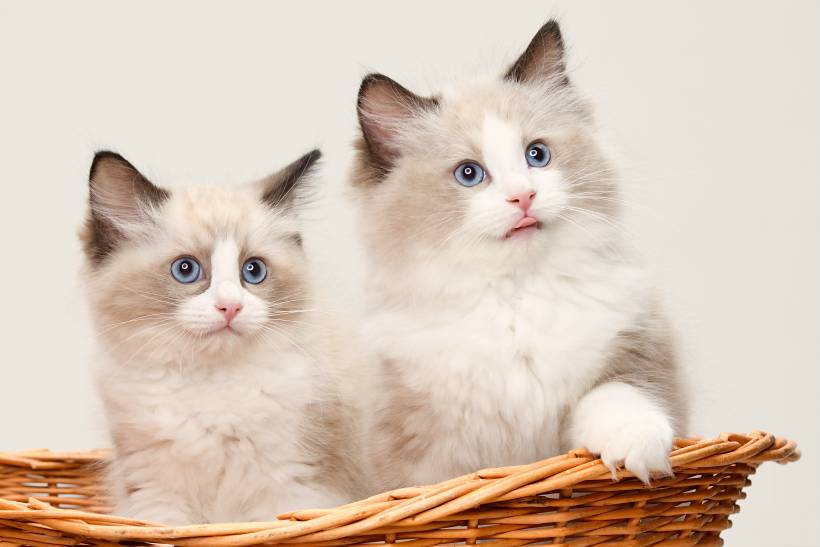
Many people confuse Birmans and Ragdolls with Siamese cats and Maine coons of certain colours because of their appearance. But here are a few ways to tell if a cat is a Birman or a Ragdoll:
Size and weight
A male Ragdoll weighs an average of 15 to 20 pounds, while female cats of this breed are usually 10 to 15 pounds heavy. On the other hand, Birmans are typically smaller, with both male and female varieties averaging 12 pounds.
Eye colour
Both cat breeds are famous for their vivid blue eyes.
Coat colour and pattern
One of the most recognisable Birman cat characteristics is its colourpoint, which means its legs, tails, ears, and face are darker than the rest of its white or cream body. The most common Birman colourpoints are:
Seal: This refers to a very dark shade of brown, similar to a Siamese cat’s dark coat.
Blue: This colour is a paler version of seal. Depending on the lighting, it can also appear grey or blue (hence the name).
Chocolate: This is similar to seal, only much warmer and lighter.
Lilac: A Birman with lilac points has very light colouration. In some cases, this shade can appear pink-grey.
Meanwhile, Ragdolls are categorised into four groups based on coat pattern:
Colourpoint: This may come in different types, such as tabby, torbie, or tortie.
Mitted: This is similar to colourpoint but with the presence of white paws, belly stripe, and chin.
Van: A Ragdoll with a van pattern is mostly white but has an inverted V on its face.
Bicolour: This is almost the same as van, only with colours on the ears, tails, and back pads.
Like Birmans’ coats, Ragdolls’ furs are mostly light-coloured, with patterns in seal, blue, lilac, chocolate, cream, or red.
In terms of personality
Each cat can have its own personality, but in general, there are many similarities between the Birman cat vs Ragdoll in this aspect. Perfect for first-time cat owners, they are rather talkative, sociable, dependent, and easy to train. These affectionate cats are also playful, so it would be good to give them a scratching post to prevent damage to your furniture.
One difference between Birman and Ragdoll cats is the tendency of the latter to go limp when someone carries them. Do note that this is not an invitation to roughhouse with these friendly cats. In fact, Ragdolls, just like Birmans, are more suitable for households where children know how to respect a pet’s boundaries and space.
In terms of care difficulty
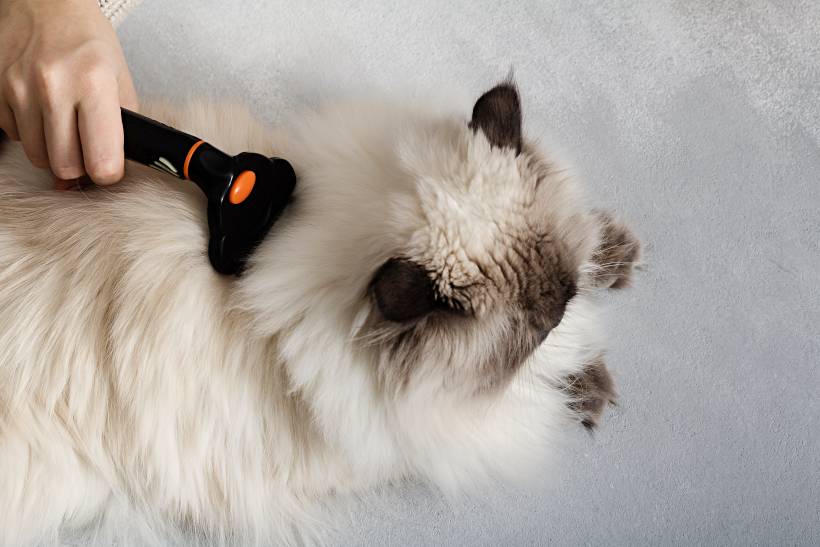
Ragdolls and Birmans are some of the fluffiest cat breeds, so it should be expected that they require more maintenance than other cats. Birmans’ silky fur must be brushed at least once a week, while Ragdolls’ soft coat must be groomed daily to prevent matting.
Moreover, both require sufficient mental and physical stimulation, which you can provide through daily games and cat toys. These activities can also help prevent them from getting overweight.
Responsibly caring for these cats involves ensuring they are free from illnesses and up-to-date on their vaccines through diet and health monitoring. Regular vet visits are also important to discover any diseases right away. For instance, like most breeds, they can have a heart disease in the form of hypertrophic cardiomyopathy.
In terms of cost
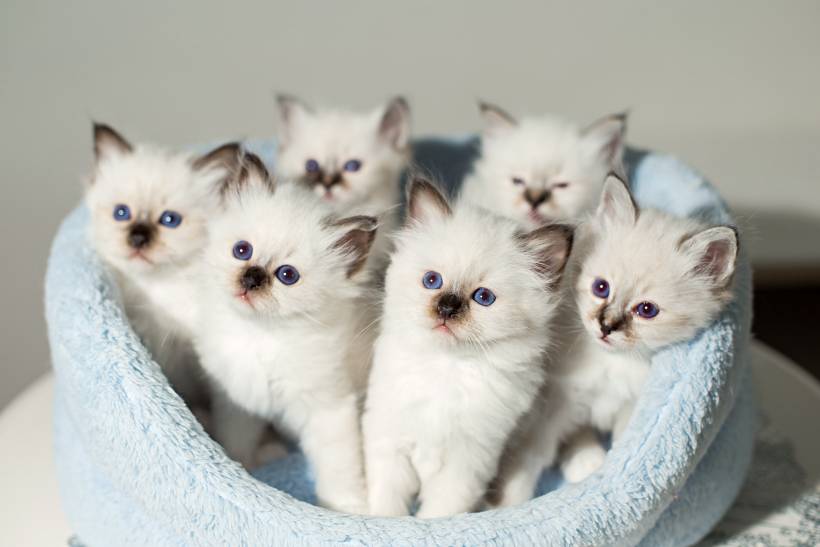
On average, a Birman can cost anywhere from £500 to £1,000. Meanwhile, one should expect to shell out £400 to £1,000 for a Ragdoll. Prices vary based on factors like the breeder’s reputation, the cat’s pedigree, and the existence of sought-after or unusual traits.
Care for your Birman or Ragdoll with Airtasker
Need assistance with caring for your Birman or Ragdoll? Let Airstasker’s pet carers and cat sitters provide help for a fee. Its experts can also deal with other animals you may have, such as dogs, fish, or reptiles.
You can start looking for someone by posting a task on the website. Include details like the kind of service you need, the type of pet you have, and your budget.
Birman vs Ragdoll
| Birman | Ragdoll | |
| Origin | 1960s California |
Possibly from Burma (present-day Myanmar) |
| Appearance | Smaller, has blue eyes, and has white or cream fur with seal, blue, chocolate, or lilac points |
Larger, also has blue eyes, may or may not have point colouration, and comes in similar colours |
| Personality | Playful, relaxed, intelligent, and friendly |
Also sociable, charming, laidback, and smart |
|
Care Difficulty |
Needs to be brushed weekly, requires regular exercise and mental stimulation |
Needs to be brushed every day, must also have daily exercise and brain stimulation |
| Cost | £500 to £1,000 |
£400 to £1,000 |
FAQs on Birmans and Ragdolls
Neither Birmans nor Ragdolls are hypoallergenic. In fact, any cat breed can trigger an allergy, based on previous studies.
Being a responsible Birman or Ragdoll breeder can be challenging because it is important to assess the heritable traits of the cats involved and determine if they have genetic defects that may be passed down. Laboratory tests may even be necessary to rule out anomalies.
Both Ragdolls and Birmans can be suitable for apartment living due to their laid-back demeanour. Just make sure that you give them their daily dose of attention, physical exercise, and mental stimulation.
Find cat care services, fast
Post a task
Related articles
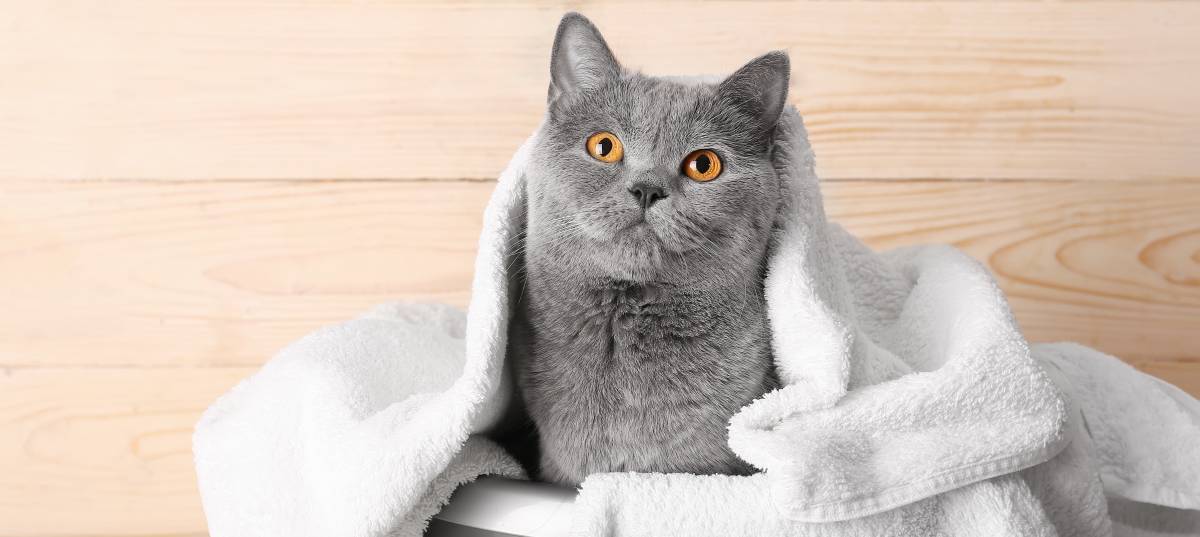
How to groom a cat at home
Read more
Related price guides
